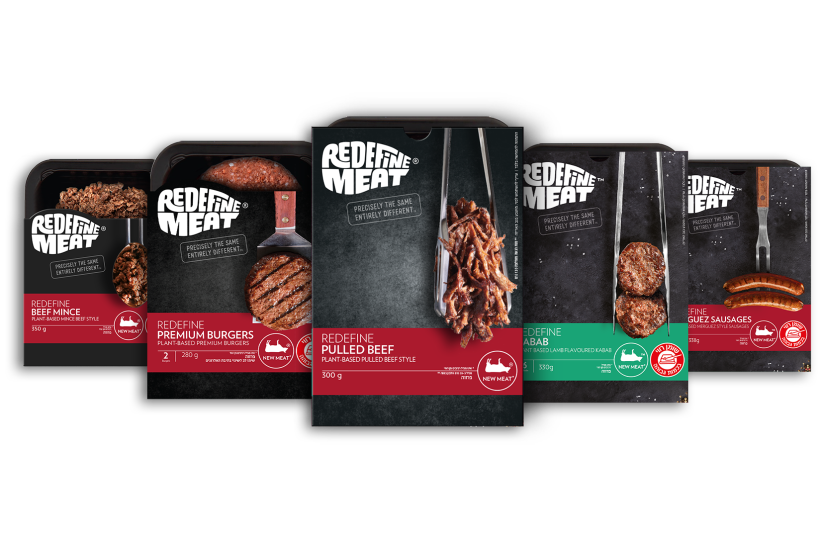To be crystal clear, when discussing modern alternatives to meat, we are dealing with two quite different types of substitutes, known respectively as plant-based and cultured products. In both, Israeli hi-tech science places the country at the top of the innovation league, up there with the US.
Plant- and fungus-based products are made from ingredients such as soy, wheat gluten, pea protein, or mycoprotein. A great deal of research has gone into replicating the taste, the mouth feel, the flavor, and the appearance of specific types of meat. Greatly improving on earlier versions, hi-tech plant-based substitutes for burgers, chicken nuggets, sausages, ground beef. and a range of other meat products have been on the market worldwide since about 2010.
At the annual Food Tech Israel conference held in Tel Aviv on November 7, 2022, the substitute roast beef, made from fermented plant proteins, was, according to Time magazine, “as succulent and savory as the real thing.” The kebabs, burgers, and pulled (shredded) roast beef were plant-based from Redefine Meat, a company launched in Israel in 2021 and now global, employing some 80 scientists and engineers.
Redefine Meat: A now global alternative meat company
Redefine Meat received the largest grant ever for a technological start-up within the food industry from the Israel Innovation Authority (IIA), the government’s support arm charged with fostering the development of industrial research and development.
Adam Lahav, one of Redefined Meat’s founders alongside Eschar Ben-Shitrit, explains: “The company was established …to use advanced technology to enable meat lovers to enjoy vegetarian new meat that does not harm the environment, by creating a sensory experience that is identical to that of meat consumption.”

The company’s ambitious slogan is “Precisely the same, entirely different.” “When people talk about food,” says Lahav, “they refer to taste; but ultimately, eating is a sensory experience – the aroma, the sizzle in the pan, the taste and texture. All the senses are involved.” The company hopes to replicate all the elements involved in eating meat, with none of the claimed nutritional and health disadvantages of eating too much red and processed meat.
Spirulina is a biomass of blue-green algae. It is the most efficient converter of solar energy to protein. To grow, the bacteria primarily need heat, sunlight, and carbon dioxide – conditions that exist in abundance in the Israeli desert. SimpliiGood (Algaecore Ltd.) was established in Israel eight years ago and is the only company in the world that knows how to grow fresh spirulina with a high consistency level of over 97%. The spirulina is produced at two farms – one in Tel Mond and the other in the Arava – both controlled remotely from a single center.
The spirulina produced by the company contains 74% full protein including amino acids, antioxidants, vitamins, and minerals – “in short, all the nutrients that are crucial for us as humans,” says Lior Shalev, CEO and co-founder. With more than 90% absorption into the body, the product is very similar in its protein structure to eggs, considered the ultimate protein.
The Good Food Institute (GFI) is an international, science-based nonprofit organization focused on building a sustainable, healthy, and just food system. GFI Israel partners with scientific institutions, governmental organizations, and businesses to promote groundbreaking alternative protein research and innovation. Nir Goldstein, managing director of GFI Israel, links Israel’s remarkable progress in protein-based meat substitutes to the worldwide sense of urgency on sustainable issues generally. ”We understand that the Israeli contribution to the climate change battle can be in protein innovation,” he said.
The alternative route to developing a substitute for meat – cultured meat – is innovative in quite a different way. It is produced by harvesting cells from live animals, “feeding” the cells with nutrients so they can grow in a bioreactor, and turning the result into a product consumers can eat. The product is basically laboratory produced. Is it in any sense meat? The halachic implications could have been damning. They are still a trifle opaque.
According to Israel’s Ashkenazi Chief Rabbi, David Lau, cultured meat is parve (non-dairy and non-meat). However, the ruling goes that it should not be sold with dairy products, to avoid the public getting “used to eating dairy and meat products together.” The implication is that even though they are parve, they should be served at home on meat not dairy crockery.
Cultured meat is still in the early stages of its development. To provide Israel’s program with added impetus, academic institutions, companies, and start-ups aimed at advancing the field of cultured meat came together to form the Israeli Cultivated Meat Consortium – a collaborative effort of involved organizations.
It was IIA seed funding that enabled the consortium to get off the ground. In April 2022, it granted $18 million for what it dubbed the “world’s largest” consortium for cultivated meat development, made up of 14 companies including leading Israeli food tech start-ups such as Aleph Farms, Tnuva, Sartorius, and SuperMeat, and 10 universities and research institutions. The consortium is co-led by Gaya Savyon, a grantee of GFI Israel, and Israeli food manufacturing giant Tnuva.
“It’s delicious and guilt-free. I can’t taste the difference.”
Benjamin Netanyahu
Israel leads the world in this field in more than one way. Prime Minister Benjamin Netanyahu was the world’s first head of government to taste cultivated meat in public, sampling Aleph Farms steak on December 7, 2020. “It’s delicious and guilt-free. I can’t taste the difference,” he said, pledging that “Israel will become a powerhouse for alternative meat and alternative protein.” President Isaac Herzog tried cultivated chicken nearly a year later, becoming the first, and so far, only president to do so. Two firsts that point the way to a bright future for Israel in this rapidly expanding area. ■
